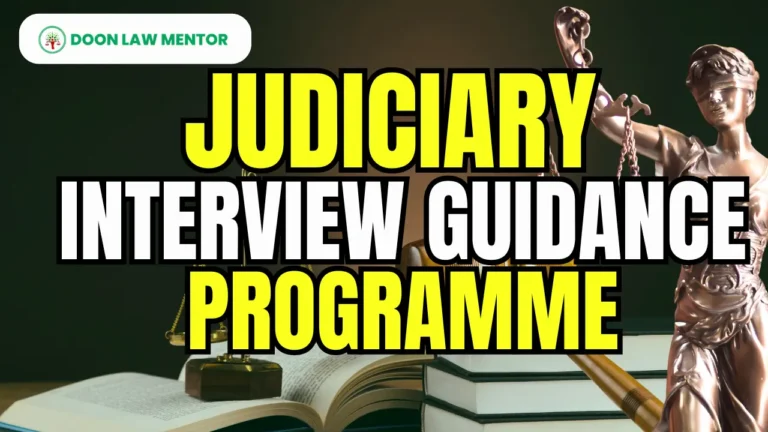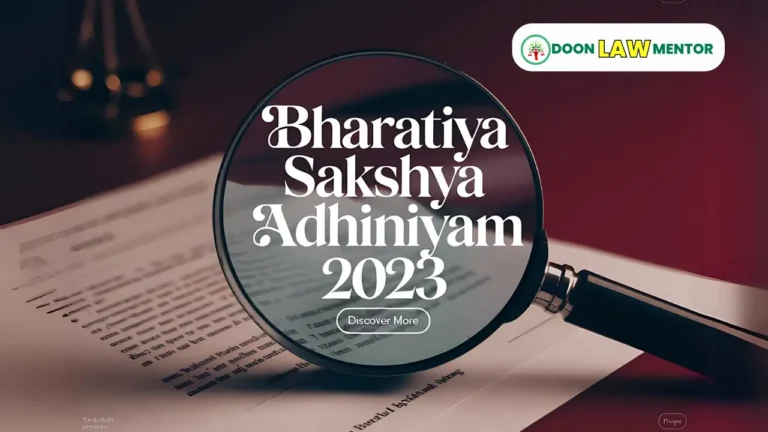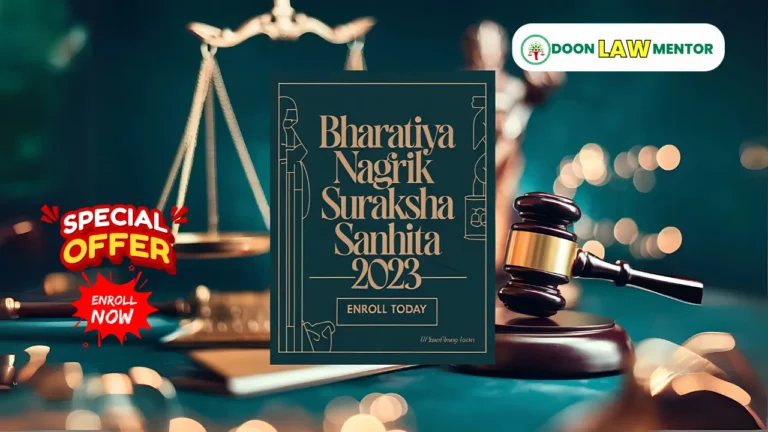In a landmark ruling, the Supreme Court in State of Tamil Nadu v. The Governor of Tamil Nadu and Anr declared the Tamil Nadu Governor Action Illegal 2025 by reserving 10 re-enacted bills for the President as illegal and erroneous. The court set aside all subsequent actions. It clarified Article 200 and set timelines for gubernatorial decisions. The Tamil Nadu Governor Action Illegal 2025 ruling stresses that Governors must not create roadblocks. This blog explores the Tamil Nadu Governor Action Illegal 2025 judgment, Article 200, and its significance for Judiciary, APO, and JLO aspirants preparing for 2025 exams.
Table of Contents
Introduction
On April 7, 2025, the Supreme Court delivered a significant judgment. In State of Tamil Nadu v. The Governor of Tamil Nadu and Anr, the Tamil Nadu Governor Action Illegal 2025 was set aside. Tamil Nadu Governor Dr. R.N. Ravi withheld assent to 10 bills—some pending since January 2020. He then reserved them for the President after their re-enactment by the state legislature. The court deemed this action unconstitutional.
Justices J.B. Pardiwala and R. Mahadevan clarified Article 200’s scope. They set timelines for gubernatorial decisions. The Tamil Nadu Governor Action Illegal 2025 ruling reinforces the elected legislature’s primacy. For Judiciary, APO, and JLO aspirants, the Tamil Nadu Governor Action Illegal 2025 judgment is a must-know for 2025 exams. It offers insights into Article 200, gubernatorial roles, and judicial oversight. This blog analyzes the Tamil Nadu Governor Action Illegal 2025 ruling, Article 200, and its implications for aspirants.
Background: State of Tamil Nadu v. The Governor of Tamil Nadu and Anr (2025 SC)
The Tamil Nadu Governor Action Illegal 2025 case arose from a conflict in Tamil Nadu. The state government, led by the Dravida Munnetra Kazhagam (DMK) under Chief Minister M.K. Stalin, clashed with Governor Dr. R.N. Ravi. The Governor assumed office in September 2021. The state approached the Supreme Court in 2023. It challenged the Governor’s refusal to grant assent to 12 bills passed by the Tamil Nadu Legislative Assembly.
Timeline of Events
- January 2020 to April 2023: The Tamil Nadu Assembly passed 12 bills. These were sent to the Governor for assent. Some bills remained pending since January 2020.
- November 10, 2023: The Supreme Court ruled in State of Punjab v. Principal Secretary to the Governor of Punjab (2023). It held that Governors cannot indefinitely withhold assent to bills. They must return them for reconsideration if assent is withheld.
- November 13, 2023: Three days after the Punjab judgment, Governor Ravi withheld assent to 10 of the 12 bills. This action drew criticism for being delayed until the court’s intervention.
- November 18, 2023: The Tamil Nadu Assembly re-enacted the 10 bills in a special session. The bills were re-presented to the Governor for assent.
- November 28, 2023: The Governor reserved the re-enacted bills for the President’s consideration. He cited repugnancy with central laws as the reason.
- February 10, 2025: The Supreme Court reserved its judgment after four days of hearings. It formulated eight key questions to address constitutional and factual issues.
- April 7, 2025: The court delivered its verdict. The Tamil Nadu Governor Action Illegal 2025 ruling set aside the Governor’s actions.
Petitioner’s Arguments (Tamil Nadu Government)
- The state argued that the Governor’s delay—over three years—constituted a pocket veto. This practice is unconstitutional under Article 200.
- It contended that after the Assembly re-enacted the bills, the Governor was obligated to grant assent. Reserving them for the President in the second round violated constitutional procedure.
- Represented by Senior Advocates Abhishek Manu Singhvi, Mukul Rohatgi, Rakesh Dwivedi, and P. Wilson, the state emphasized that such actions paralyzed governance. They undermined the will of the people and violated parliamentary democracy.
Respondent’s Defense (Governor of Tamil Nadu)
- Attorney General R. Venkataramani represented the Governor. He argued that the bills were repugnant to central laws.
- This justified their reservation for the President’s consideration in the national interest.
- The defense claimed the Governor had discretion to withhold assent without returning the bills. It interpreted Article 200 as providing four options: assent, withhold assent, reserve for the President, or return to the Assembly.
The Supreme Court’s Ruling: Key Findings in Tamil Nadu Governor Action Illegal 2025
On April 7, 2025, Justices J.B. Pardiwala and R. Mahadevan delivered a unanimous judgment. The Tamil Nadu Governor Action Illegal 2025 ruling set aside the Tamil Nadu Governor’s actions. It established significant precedents under Article 200.
1. Governor’s Action Declared Illegal and Erroneous
- The court found the Governor’s reservation of the 10 re-enacted bills for the President on November 28, 2023, to be illegal and arbitrary.
- Justice Pardiwala stated, “Action of Governor to reserve the 10 bills for President is illegal and arbitrary and thus the action is set aside.”
- All subsequent actions, including any steps by the President, were declared non-est in law (legally invalid).
- The court ruled that the 10 bills were deemed to have received the Governor’s assent. This was effective from the date they were re-presented after re-enactment.
2. No Concept of Absolute or Pocket Veto
- The court clarified that Article 200 does not permit an absolute veto or pocket veto. A pocket veto involves indefinitely withholding assent.
- Justice Pardiwala emphasized, “There is no concept of ‘absolute veto’ or ‘pocket veto’ under the Constitutional scheme.”
- The Governor has three options under Article 200: grant assent, withhold assent, or reserve for the President.
- If the Governor withholds assent, the bill must be returned to the legislature for reconsideration.
- After re-enactment, the Governor must grant assent, except in cases affecting High Court powers.
3. Timelines for Gubernatorial Decisions Under Article 200
- The court set specific timelines to ensure timely action by Governors.
- If withholding assent and reserving for the President with the Council’s advice, the decision must be made within one month.
- If acting against the Council’s advice, the decision must be made within three months.
- After re-enactment by the Assembly, the Governor must grant assent within one month.
- The court held that gubernatorial actions under Article 200 are subject to judicial review.
4. Governor Must Act on Aid and Advice of Council of Ministers
- The court reaffirmed that the Governor must act on the aid and advice of the Council of Ministers under Article 200.
- This applies except in cases where the bill affects High Court or Supreme Court powers (second proviso).
- Once the Assembly re-enacts a bill, the Governor has no discretion to withhold assent or reserve it for the President.
5. Governor Lacked Bona Fides
- The court noted the Governor’s delay of over three years (since January 2020).
- He acted only after the Supreme Court’s Punjab Governor ruling on November 10, 2023.
- The Governor withheld assent on November 13, 2023, and reserved the bills for the President on November 28, 2023.
- This showed a lack of respect for the Punjab judgment, indicating a lack of bona fides.
- The court observed that the Governor’s actions were influenced by extraneous considerations, possibly political.
6. Exercise of Article 142 Powers
- Due to the three-year delay and the Governor’s disregard for constitutional norms, the court used its Article 142 powers.
- It declared the 10 bills deemed assented from the date they were re-presented.
- This ensured justice by addressing the long pendency and restoring the bills’ legal effect.
7. Governors Must Respect the Will of the People
- Justice Pardiwala emphasized that Governors must respect parliamentary democracy.
- They should uphold the will of the people as expressed through the elected legislature.
- The court stated, “The Governor must be the catalyst and not the inhibitor.”
- Governors must not create roadblocks or chokehold the state legislature for political ends.
- The judgment quoted Dr. B.R. Ambedkar: “However good a constitution may be, if those who are implementing it are not good, it will prove to be bad.”
Understanding Article 200: Constitutional Framework and Implications
Article 200 outlines the Governor’s role in the legislative process. It applies when a state legislature presents a bill for assent. The Tamil Nadu Governor Action Illegal 2025 ruling provides a clear interpretation of this provision.
Text of Article 200
- The Governor has three options when presented with a bill:
- Assent to the bill, making it law.
- Withhold assent, returning the bill to the legislature with a message for reconsideration.
- Reserve the bill for the President’s consideration, if it involves national importance or repugnancy with central laws.
- If the Governor withholds assent and the legislature re-enacts the bill, the Governor “shall not withhold assent” upon re-presentation.
- This applies except in cases affecting the High Court (second proviso).
- The phrase “as soon as possible” requires the Governor to act expeditiously.
Key Interpretations by the Tamil Nadu Governor Action Illegal 2025 Ruling
- No Pocket Veto: Article 200 does not permit a pocket veto. The Governor cannot indefinitely withhold assent.
- Reservation at First Instance: Reserving a bill for the President must occur at the first instance. It cannot happen after re-enactment by the Assembly.
- Exception for High Court Powers: The only exception is when the re-enacted bill affects High Court or Supreme Court powers.
- Mandatory Assent After Re-Enactment: After re-enactment, the Governor must grant assent. There is no discretion to withhold or reserve for the President.
Timelines Established in Tamil Nadu Governor Action Illegal 2025
- The court set timelines to prevent delays.
- One month for decisions with the Council’s advice.
- Three months for decisions against the Council’s advice.
- One month to grant assent after re-enactment.
- These timelines align with the constitutional mandate of “as soon as possible.”
Critical Analysis: A Landmark Ruling with Far-Reaching Implications
The Tamil Nadu Governor Action Illegal 2025 ruling strengthens parliamentary democracy. It clarifies the Governor’s role under Article 200.
Strengths
- Legislative Supremacy: The Tamil Nadu Governor Action Illegal 2025 ruling upholds the elected legislature’s authority. It prevents Governors from undermining the people’s will.
- Clear Timelines: The ruling sets timelines for gubernatorial decisions. This ensures legislative processes are not stalled, as seen in Tamil Nadu, Kerala, and Punjab since 2023.
- Judicial Oversight: The Tamil Nadu Governor Action Illegal 2025 ruling allows judicial review of gubernatorial actions. It ensures accountability, as seen with the use of Article 142.
- Federalism: The ruling strengthens Centre-state relations. It limits the Governor’s discretion, ensuring the state government’s agenda is not blocked.
Challenges and Concerns
- Judicial Overreach: The timelines (e.g., one month, three months) may be seen as overreach. Article 200 does not explicitly set such limits.
- Repugnancy Ambiguity: The ruling criticized the Governor for citing repugnancy without reasons. However, it lacks clarity on how Governors should assess repugnancy.
- Political Tensions: The Tamil Nadu Governor Action Illegal 2025 ruling highlights tensions in opposition-ruled states. Governors are often seen as central government proxies.
- Implementation Issues: Enforcing the timelines may be challenging. Governors in states with strained relations may circumvent these limits, as per X posts.
Critical Perspective
The Tamil Nadu Governor Action Illegal 2025 ruling upholds parliamentary democracy. It prevents Governors from stalling governance, as seen in Tamil Nadu’s three-year delay. The timelines and aid and advice mandate reinforce democratic principles. Precedents like Nabam Rebia (2016) support this stance. However, the ruling does not address underlying political tensions. Governors in opposition-ruled states often act as central proxies. The use of Article 142 raises overreach concerns. The timelines may not suit complex scenarios, risking future disputes. Institutional reforms, like mandatory consultations, could prevent such conflicts. This would ensure the will of the people is not thwarted, as the court emphasized.
Relevance for Judiciary, APO, and JLO Aspirants
The Tamil Nadu Governor Action Illegal 2025 ruling is crucial for Judiciary, APO, and JLO aspirants preparing for 2025 exams:
- Prelims: Expect questions on Article 200, Article 142, Article 163, and cases like State of Punjab (2023) and Nabam Rebia (2016).
- Mains: Write essays on “Tamil Nadu Governor Action Illegal 2025: Balancing Gubernatorial Powers” or “Article 200 and Centre-State Relations.” Discuss Articles 200, 163, 21, federalism, and judicial oversight. Reference State of Tamil Nadu (2025) and Shamsher Singh (1974).
- Interviews: Discuss the ruling’s impact on Centre-state relations, gubernatorial roles, and judicial efficiency. Highlight 2025 trends and the need for reforms.
Conclusion
The Tamil Nadu Governor Action Illegal 2025 ruling on April 7, 2025, in State of Tamil Nadu v. The Governor of Tamil Nadu and Anr is a landmark decision. It declared Tamil Nadu Governor Dr. R.N. Ravi’s actions illegal and erroneous for withholding assent to 10 bills and reserving them for the President after re-enactment. The court’s interpretation of Article 200—rejecting the pocket veto, setting timelines, and mandating aid and advice—upholds parliamentary democracy. Using Article 142, the court deemed the bills assented, addressing a three-year delay. For Judiciary, APO, and JLO aspirants, the Tamil Nadu Governor Action Illegal 2025 judgment is essential for 2025 exams. It provides insights into gubernatorial powers, federalism, and judicial oversight. Governors must act as catalysts, not inhibitors, respecting the will of the people, as the court emphasized.
Call-to-Action
Master the Tamil Nadu Governor Action Illegal 2025 judgment for your 2025 exams! Join Doon Law Mentor’s Courses for expert guidance. Follow @doonlawmentor on Instagram for daily legal updates!
FAQs
- What did the Supreme Court rule in the Tamil Nadu Governor Action Illegal 2025 case?
The court declared the Tamil Nadu Governor’s action of reserving 10 re-enacted bills for the President as illegal and erroneous, setting aside the action and deeming the bills assented. - What is Article 200 of the Constitution?
Article 200 outlines the Governor’s powers over state bills, allowing them to assent, withhold assent, or reserve for the President, with a mandate to act “as soon as possible.” - Why was the Tamil Nadu Governor’s action deemed illegal in Tamil Nadu Governor Action Illegal 2025?
The Governor withheld assent for over three years, then reserved re-enacted bills for the President, violating Article 200 by not granting assent after the Assembly’s re-enactment. - What timelines did the Supreme Court set for Governors under Article 200 in Tamil Nadu Governor Action Illegal 2025?
Governors must decide within one month if withholding assent with the Council’s advice, three months if against advice, and one month after re-enactment by the Assembly. - What does the Tamil Nadu Governor Action Illegal 2025 ruling say about the Governor’s discretion under Article 200?
Governors must act on the aid and advice of the Council of Ministers and have no discretion to withhold assent after re-enactment, except in cases affecting High Court powers. - What happened to the 10 bills in the Tamil Nadu Governor Action Illegal 2025 case?
The court deemed the 10 bills to have received the Governor’s assent from the date they were re-presented after re-enactment by the Assembly. - What is a pocket veto, and why was it rejected in Tamil Nadu Governor Action Illegal 2025?
A pocket veto is the indefinite withholding of assent. The court rejected it, stating Article 200 requires the Governor to act expeditiously, not delay indefinitely. - How did the Supreme Court use Article 142 in Tamil Nadu Governor Action Illegal 2025?
The court invoked Article 142 to deem the bills assented, addressing the Governor’s delay and ensuring justice due to the long pendency since January 2020. - What did the court say about the Governor’s role in democracy in Tamil Nadu Governor Action Illegal 2025?
Governors must act as catalysts, not inhibitors, respecting the will of the people through the legislature and avoiding roadblocks for political ends. - Why is the Tamil Nadu Governor Action Illegal 2025 judgment important for Judiciary aspirants?
It clarifies Article 200, gubernatorial powers, and federalism, making it a key topic for prelims, mains, and interviews in 2025 exams.
#TamilNaduGovernorActionIllegal2025, #Article200, #TamilNaduJudgment, #JudiciaryExams #DoonLawMentor #SupremeCourtJudgment #JudiciaryExam2025 #Article200 #GovernorsPowers #LegalCurrentAffairs #UPPCSJ2025 #LawStudentsIndia #ConstitutionalLaw #JudiciaryUpdates #SCJudgment2025 #IndianPolity #Article142 #TamilNaduCase












